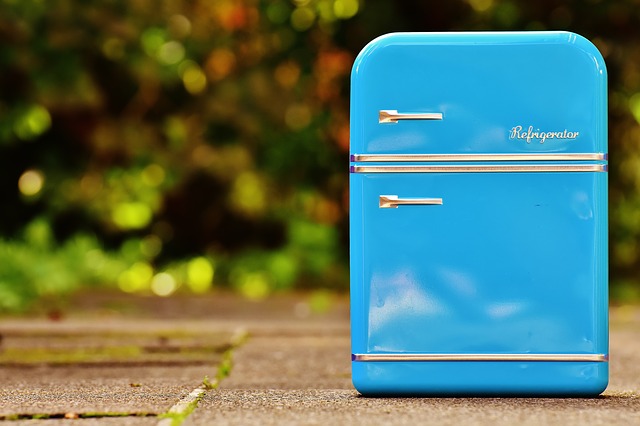10 money saving tips for your refrigerator
Refrigerators are one of the most expensive appliances many of us have. Extending its life and preventing costly repairs can save you thousands. Also, placing it in the proper area can save you monthly energy costs. Here are some useful tips to help your refrigerator last longer:
10 Tips to help you save money and extend the life of your refrigerator
- Always ship refrigerators upright. Placing the refrigerator on the side may cause a Freon leak that will prevent cooling. Placing refrigerator on its back will damage the condenser coils and cause the compressor to fail because if the unit is restarted before allowing the oil enough time to drain out of the lines and compressor back into the oil chamber. Make sure whoever moves your refrigerator does it correctly.
- Locate refrigerators away from heat sources like your range, a radiator, or a sunny window. Preventing overheating and system failure is critical to extending the life of the refrigerator. Refrigerators generate heat and need proper airflow, a solid (cool surface) to sit on, and nothing that restricts normal airflow.
- It is best to always plug the refrigerator directly into the wall. Extension cords, if not used correctly, can burn out the motor, cause power problems, and can be unsafe if too much load is on an underrated cord. Always consult a professional on the best way to get power to the refrigerator if you can not plug directly into a wall.
- Never run frost-free refrigerators with freezer compartments in unheated areas with air temperature below 60 degrees. When the air temperature goes below 60F, the compressor runs less, keeping temperatures in the refrigerator compartment cold enough for fresh food but not cold enough in the freezer. At air temperatures below 40F, the compressor stops running, so the freezer compartment rises to air temperature and food thaws and spoils. Also below 32F, water melted during the automatic defrost cycle may freeze again and block air passages.
- When leaving for vacations or other long trips, keep your refrigerator smelling nice by discarding perishable food. Save energy by turning off the ice maker.
- One common myth is to fill the refrigerator, doing this only blocks the circulation of free air to properly cool your food.
- To prevent odors and food quality; cover or wrap all exposed foods. Clean up spills and remove spoiled food immediately.
- Clean the refrigerator/freezer regularly by taking out all food and removable interior parts. Wash with a mild food-safe detergent or baking soda and rinse with warm water. Rinse and wipe dry. Take out removable glass shelves and plastic and repeat the procedure. Glass or plastic can break or crack when exposed to sudden temperature changes so make sure to try to match the temperature or bring the plastic/glass to room temperature. Make sure to clean the door gasket with a detergent solution as a dirty door gasket can cause bad seals that increase the cost of running the refrigerator.
- It is recommended to clean condenser coils twice a year by gently brushing off the buildup that may cause overheating. This will help avoid costly repairs.
- Regularly clean the seals in order to maintain proper temperature control and system efficiency. Doing this will help prevent mold and keep the seals tight free of dirt.
A bit of maintenance can really make a difference in the life of your refrigerator and help you to avoid costly repairs. Each appliance you have in your house should follow the same basic maintenance, keep free of dirt, wipe down seals, set up properly, and refer to your owner’s manual for any additional items like lubrication, filter changing, or other specific items.


